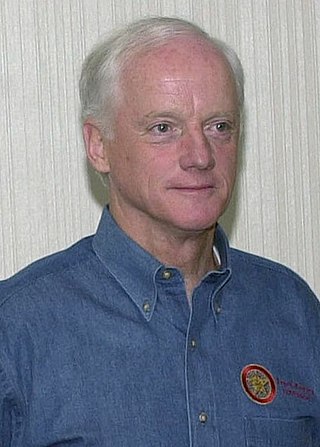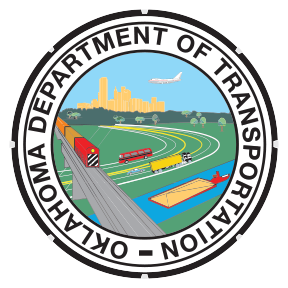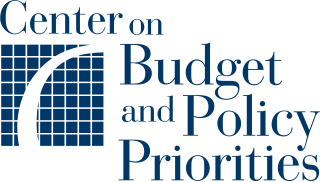
Francis Anthony Keating II is an American attorney and politician who served as the 25th governor of Oklahoma from 1995 to 2003.
The Tax Foundation is an international research think tank based in Washington, D.C. that collects data and publishes research studies on U.S. tax policies at both the federal and state levels. Its stated mission is to "improve lives through tax policy research and education that leads to greater economic growth and opportunity".
George Bruce Kaiser is an American billionaire businessman. He is the chairman of BOK Financial Corporation in Tulsa, Oklahoma. As of September 2021, he is the 476th richest person in the world and was, in 2012, one of the top 50 American philanthropists.

The Consumer Federation of America (CFA) is a non-profit organization founded in 1968 to advance consumer interests through research, education and advocacy.

Mary Fallin is an American politician who served as the 27th governor of Oklahoma from 2011 to 2019. A member of the Republican Party, she was elected in 2010 and reelected in 2014. She is the first and only woman to be elected governor of Oklahoma. She was the first woman to represent Oklahoma in Congress since Alice Mary Robertson left office in 1923.
Families USA is a nonprofit, nonpartisan consumer health advocacy and policy organization.

The Oklahoma Department of Transportation (ODOT) is an agency of the government of Oklahoma responsible for the construction and maintenance of the state's transportation infrastructure. Under the leadership of the Oklahoma secretary of transportation and ODOT executive director, the department maintains public infrastructure that includes highways and state-owned railroads and administers programs for county roads, city streets, public transit, passenger rail, waterways and active transportation. Along with the Oklahoma Turnpike Authority, the department is the primary infrastructure construction and maintenance agency of the State.

David Lyle Boren is a retired American lawyer and politician from Oklahoma. A member of the Democratic Party, he served as 21st governor of Oklahoma from 1975 to 1979 and three terms in the United States Senate from 1979 to 1994. A conservative Democrat, to date, he is the last in his party to have served as U.S. Senator from Oklahoma. He was the 13th and second-longest serving president of the University of Oklahoma from 1994 to 2018. He was the longest serving chairman of the Senate Select Committee on Intelligence. On September 20, 2017, Boren officially announced his retirement as president of the University of Oklahoma, effective June 30, 2018.

The Oklahoma Democratic Party is an Oklahoma political party affiliated with the Democratic Party. Along with the Oklahoma Republican Party, it is one of the two major parties in the state.

The Center on Budget and Policy Priorities (CBPP) is a progressive American think tank that analyzes the impact of federal and state government budget policies. A 501(c)(3) nonprofit organization, the Center's stated mission is to "conduct research and analysis to help shape public debates over proposed budget and tax policies and to help ensure that policymakers consider the needs of low-income families and individuals in these debates."

David Brumbaugh was an American businessman and Republican politician from Oklahoma. Brumbaugh was a Representative in the Oklahoma House of Representatives for District 76, located in Broken Arrow, Oklahoma, and Chairman for the Oklahoma Republican House Caucus which serves as the majority party in the Oklahoma House of Representatives.

The Oklahoma District Attorneys Council is an agency of the state of Oklahoma that provides professional organization for the education, training and coordination of technical efforts of all Oklahoma state prosecutors and to maintain and improve prosecutor efficiency and effectiveness in enforcing the laws of the state. The Council distinguishes itself from the District Attorneys Association, a private organization, in order to lobby the legislature, though it is composed of the same members.

Susan Winchester was elected to the Oklahoma House of Representatives to represent District 47 in 1998 where she served until 2008. She was elected Whip for the Republican Caucus after her first term, and in 2005 became the first woman to serve as Speaker Pro Tempore, the second highest position in the House.
Every Texan, formerly known as the Center for Public Policy Priorities (CPPP), is an Austin-based, nonpartisan, nonprofit policy institute.
The Oregon Center for Public Policy (OCPP) is an American economic research organization that conducts research and analysis of budget, tax, and economics issues to support policies that improve opportunities for all Oregonians. It supplies lawmakers with information "on issues affecting low- and moderate-income Oregonians".
Jacqulyn "Jackie" Longacre is the former executive director of Planned Parenthood in Tulsa, Oklahoma. In the eighteen years she was the director of the Tulsa campus, they grew from serving 1,600 patients to serving over 10,000 patients in a single year and were awarded the Fairchild Award, the highest award available for being a quality service affiliate. Longacre played a vital part in establishing Reproductive Services in Tulsa as well as Tulsa County Perinatal Coalition. In 1993, she was inducted in the Oklahoma Women’s Hall of Fame.

Under the public healthcare policy of the United States, some people have incomes too high to qualify in their state of residence for Medicaid, the public health insurance plan for those with limited resources, but too low to qualify for the premium tax credits that would subsidize the purchase of private health insurance. These people are described as falling into the Medicaid coverage gap.

Greg Treat is an American Republican politician from Oklahoma who served as the President Pro Tempore of the Oklahoma Senate. He represented the 47th district from 2011 to 2024.

Kyle Hilbert is a Republican member of the Oklahoma House of Representatives and the current speaker pro tempore. He has represented 29th district of the Oklahoma House of Representatives since 2016 and is the Speaker of the Oklahoma House of Representatives-elect.
Maria Verónica Reina was an Argentine educational psychologist and activist who campaigned internationally for disability rights. Representing the International Disability and Development Consortium, she was a leading contributor to negotiations on the United Nations Convention on the Rights of Persons with Disabilities.













